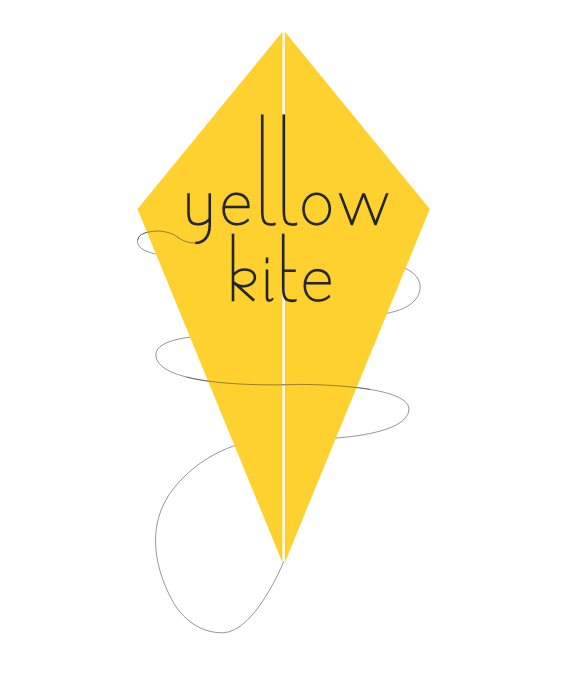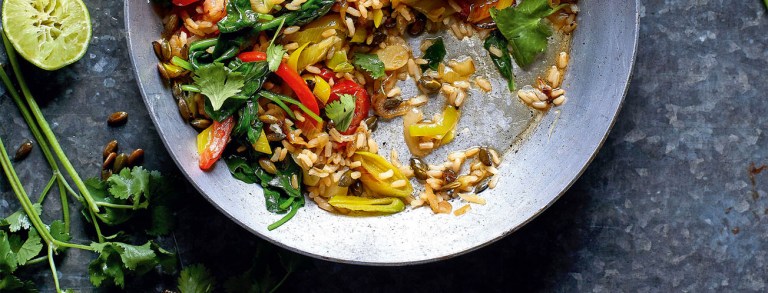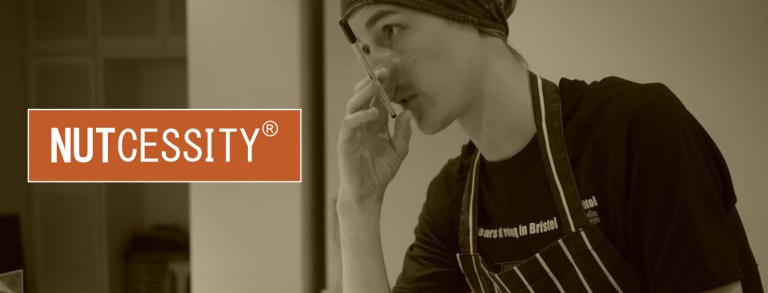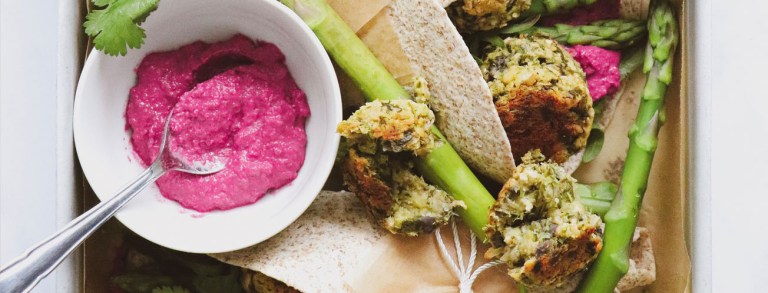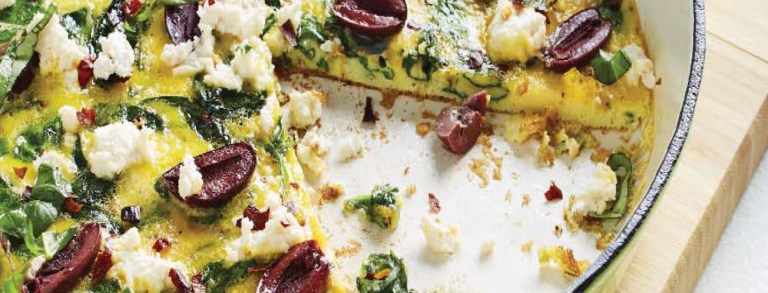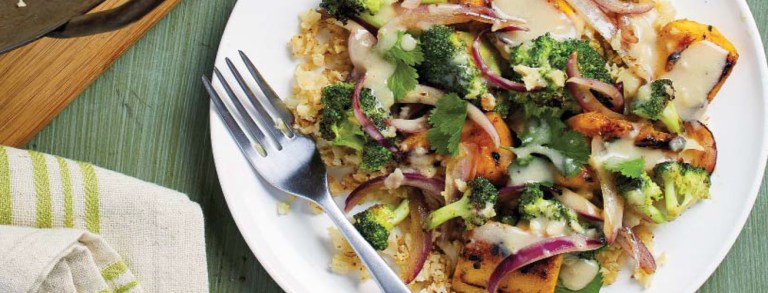Is A Vegan Diet Healthy?
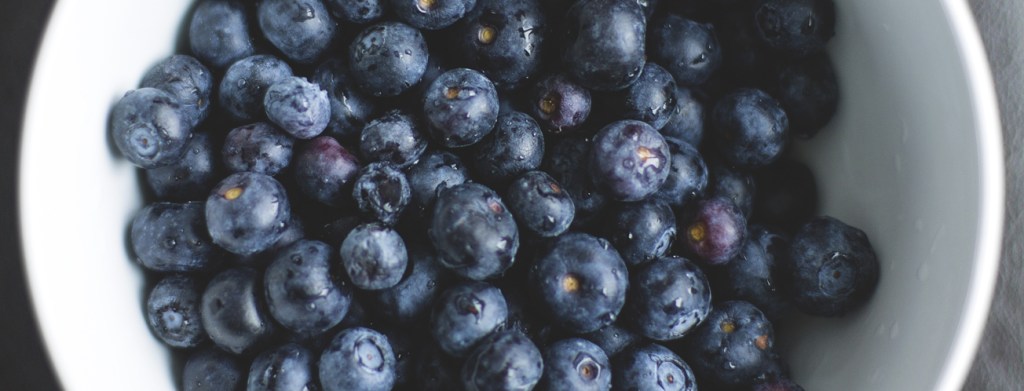
With more people taking up vegetarian or vegan diets for more reasons we asked Christine Bailey, an award winning nutritional therapist, chef and broadcaster, what the common misconceptions are about swopping to a vegan diet.
1. If you don’t eat meat, where do you get your protein?
Many people worry about removing meat and fish from their diet and protein intake but properly planned you can get sufficient protein from a plant based diet. This is where GO LEAN VEGAN is unique – the focus of the vegan weight loss programme is making sure you get sufficient protein at each meal. Many other plant based cookbooks and programmes do not contain sufficient protein. It is also important to include plenty of variety as many plant protein sources do not contain all the essential amino acids our body needs. But by including plenty of variety you will ensure a complete mix of amino acids. Top protein vegan sources include tofu, tempeh, vegan protein powders, hemp seeds, beans, lentils, peanuts, nuts and seeds, quinoa, tahini, broccoli, mushrooms, sweet potato
2. Can you be vegan and have enough energy to do sports?
Absolutely – there are many well known vegan athletes and many people actually find that switching to a vegan diet makes them feel lighter and more energised.
3. Can you be a vegan if you suffer anaemia?
There are many reasons why people can be anaemic so it is important to address underlying reasons whether you are a meat eater , vegetarian or vegan. Normally if you have been diagnosed as anaemic you would be advised to take a supplement. In addition ensure sufficient iron rich foods and eat them at the same time as vitamin C rich foods. Vitamin C enhances the absorption of iron from plant foods.Vitamin C is found in citrus fruits, red pepper, berries, green leafy vegetables. Cooking foods in cast iron pans can increase iron consumption from acidic foods like tomato sauce. Certain foods like tannins in coffee and tea, high doses of calcium supplements interfere with iron absorption so drink coffee and tea away from meals and take any calcium supplements away from iron rich meals. Iron rich foods include instant oatmeal, spinach, swiss chard, sea vegetables, prunes, beans, lentils, soybeans, tempeh, cashew nuts, dark chocolate and cocoa, blackstrap molasses.
4. Is it true that vegan food takes a lot of time in terms of preparation?
Nothing could be further from the truth – you can make a meal in minutes with plenty of vegetables, some pan fried tofu, nuts and seeds or cans of cooked beans and lentils. The book includes plenty of speedy delicious recipes
5. Is it safe to follow a vegan diet during pregnancy or breastfeeding?
Vegan diets can easily meet the nutritional needs of you and your growing baby. In fact various studies have found that weight gain in pregnant women and birth weights of babies in vegan communities were healthy and adequate and rates of preeclampsia much lower. Protein needs do increase as do iron. It is also important to ensure you get sufficient zinc and vitamin D as well as B vitamins including folate but many of these nutrients can often be low in diets which include meat.
6. What is the best milk substitute in terms of nutrients?
There are a wide range of dairy free milk options and including a variety in your diet can ensure a wide range of nutrients. Many are also fortified with B12 and vitamin D. Hemp milk is creamy and a good source of omega 3 fats as well as protein while Coconut milk contains healthy medium chain triglycerides plus lauric acid which supports immune health
7. How do I know what to order when eating out at a non-vegan restaurant? Is anything safe?
Look to Ethnic Cuisines for great plant based meals – miso soups with tofu, Asian Stir fries with beans or tempeh, lentil dahl, bean chillis and soups are all great options.
8. Is it bad to have too much soy?
I discuss the potential concerns about soy in my book. Soy products can be somewhat controversial. Soy is a common allergen food and may not be tolerated for everyone. There is also some concern that for people with low thyroid function soy may be problematic. This is because soy and certain other foods (e.g. cruciferous vegetables, millet, cassava) contain goitrogens. These compounds have been shown to interfere with thyroid function although typically this is considered to only be a problem if they are eaten in excess and iodine intake is low. If your diet is sufficiently rich in iodine consuming a little soy should therefore not be a problem. Fermenting soy further reduces the activity of goitrogens which is another reason for focusing more on fermented products like miso, tempeh and tamari soy sauce.
There is no doubt that soy is a useful protein source for vegans especially because it contains all the essential amino acids. If you are going to include soy avoid the processed products and opt for organic, non genetically modified soy. Fermented soy products like miso, tamari, natto and tempeh have been staples of Asian cultures for centuries. However, cultivation of soybean has also given rise to many other products that include meat substitutes like textured vegetable protein (TVP), soy cheese, spreads and processed junk foods like vegan burgers and hotdogs. These processed foods are far removed from traditional soy products and often full of additives so if you are going to eat soy focus more on traditional fermented products.
9. Are frozen vegan dinners bad for you?
Ready meals whether meat, fish or vegetable based can be processed and often high in salt and additives. There is no reason why you need to resort to ready meals when it is simple to make delicious healthy vegan dishes in no time
10. How can I tell if I am vitamin deficient?
If you are concerned about your diet it is best to seek advice from your GP or seek support and testing via a qualified dietician or nutritionist.
11. Is it okay to freeze veggies and fruits?
Many vegetables and fruits are suitable for freezing – often it is best to open freeze – spread them out on a lined baking tray and freeze until firm – then you can pack them in freezerproof bags or containers. There are also many bags of different frozen fruits and vegetables available from supermarkets which can be used quickly as a base of healthy home made meals
12. Which nuts are the best to eat?
Choose raw and unsalted and include a good variety. Walnuts are rich in omega 3 fats while macadamia are a great source of healthy monounsaturated fats. Seeds such as chia, hemp and flaxseed are often a better option than nuts for fats as they are often richer in omega 3 fats which can be low in vegan diets.
Go Lean Vegan by Christine Bailey, published by Yellow Kite, £9.99
